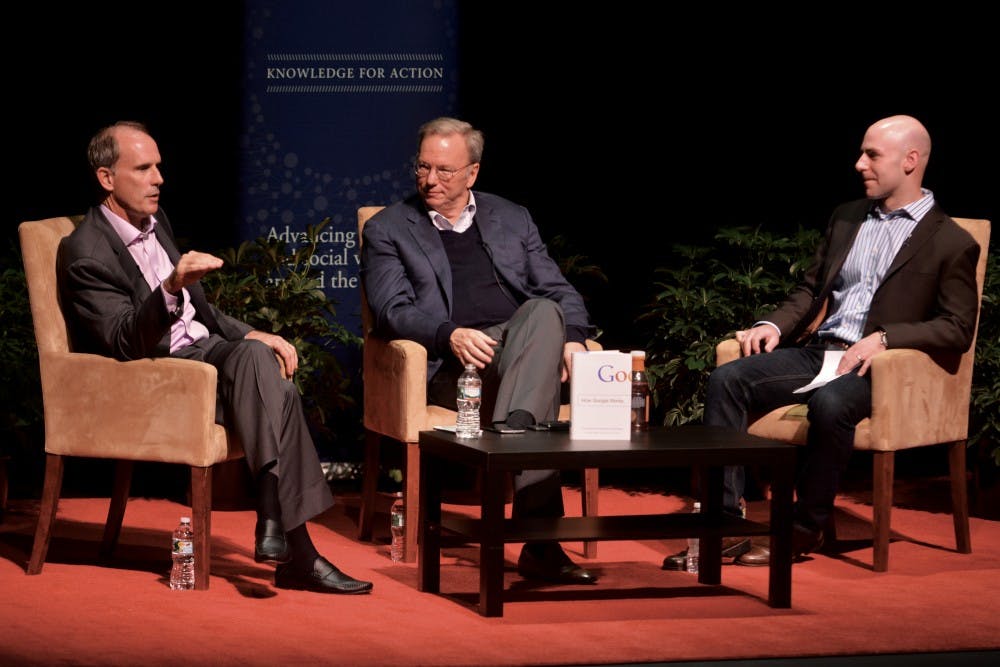
Two senior Google employees spoke to a full Zellerbach Theater Monday night about how Google works and their recent book of the same name.
Google’s Executive Chairman Eric Schmidt and former Senior Vice President of Products and current advisor to the CEO Jonathan Rosenberg discussed their new bestseller “How Google Works” with Penn’s undergraduate and Wharton MBA students as part of the Authors@Wharton Speaker Series.
The two speakers touched on topics ranging from censorship and Google’s current projects to the company’s breach of the medical realm and the headquarter’s perpetually stocked kitchens.
Even Google has regrets — Rosenberg recounted a time when he was still “drinking the Google Kool-Aid, still labeling people” and made the mistake of turning away Kevin Systrom, who went on to co-found Instagram. Schmidt emphasized the philosophy of hiring “generalists with passion,” stressing the importance of hiring a person, not someone to fill a job.
When it comes to interviewing potential employees, Schmidt emphasized the difference between having “depth of knowledge in the subject” and “just preparing for the interview.” Schmidt said that Google likes to recruit professional athletes because they did something really difficult and did it with perseverance and passion.
Google’s top dogs realize that every person has a different skill set. Schmidt and Rosenberg noted the importance of understanding one’s own “user manual.” Rosenberg described himself as “great at communicating internally,” which became his management style of maximizing the rate of communication within and between teams to drive innovation. Schmidt, on the other hand, used the analogy of “constant spin rates” to describe his fast decision-making and systematic working style.
Rosenberg suggested that there is more to a potential employee than “cognitive ability” and suggested becoming a data scientist, identifying big data as a growing field. “Data is becoming cheap — a person who can analyze that data will be in high demand,” Rosenberg said.
During the Q&A session, a student asked the T-shirt size of the two executives, while another student promptly tossed two large -sized T-shirts onstage. The student introduced himself as part of a Wharton entrepreneurship group, which had developed an app that recalls images and messages sent in error before continuing with a question about communicating true emotion over technology. Rosenberg called this a “good way to get on his radar.”
Despite Google’s prestige in the tech world, neither Schmidt nor Rosenberg mentioned profit while discussing their company.
“We do it because we want to make people’s lives better,” they both reiterated throughout the talk.
The Daily Pennsylvanian is an independent, student-run newspaper. Please consider making a donation to support the coverage that shapes the University. Your generosity ensures a future of strong journalism at Penn.
DonatePlease note All comments are eligible for publication in The Daily Pennsylvanian.







